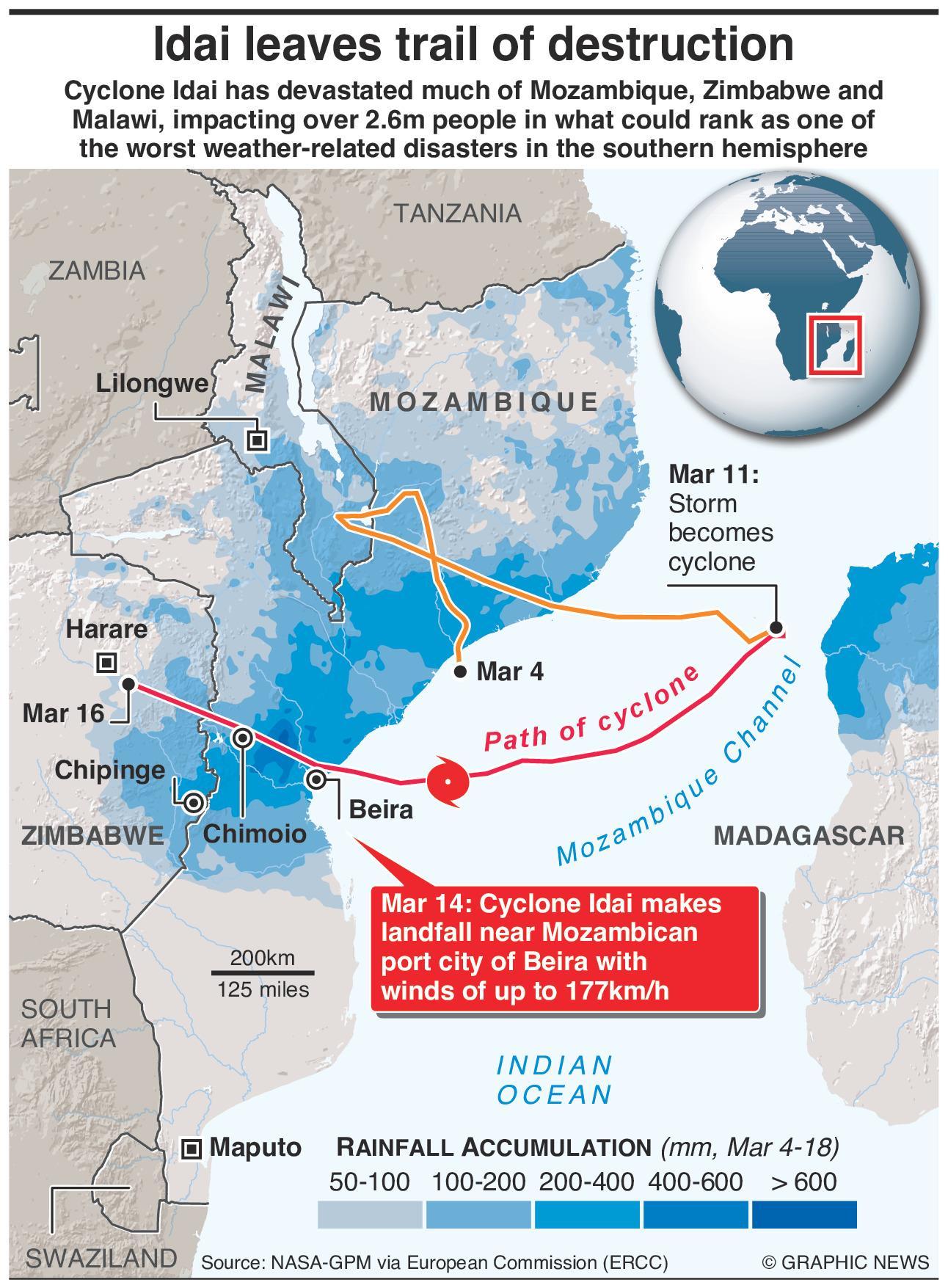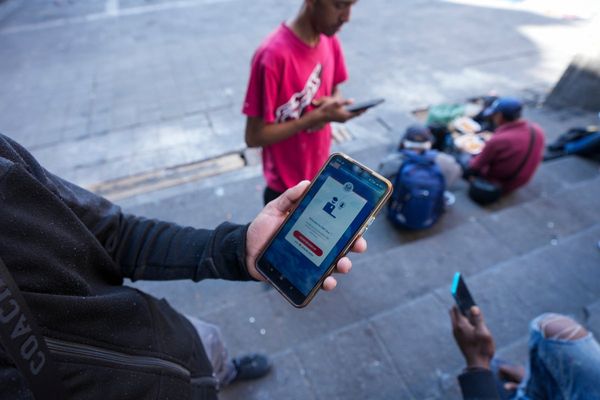Cyclone Idai has spread “death all over” in Mozambique, survivors have said, with hundreds killed across southern Africa.
In neighbouring Malawi, UN workers said that in some areas all evidence of human settlement had been washed away by the storm and subsequent floods.
With the death toll reaching at least 360 – but expected to rise – world governments have said they will increase their efforts to help. In Mozambique, 202 deaths have been reported. Some 102 people have died in Zimbabwe and 56 in Malawi.
It will be days before Mozambique’s flooded plains drain towards the Indian Ocean, and longer still before the full scale of the devastation is known.
“There is death all over,” said Amos Makunduwa, carrying a few remaining possessions. “It is beginning to smell really bad,” he added. “The whole area is like one big body of water, huge rocks and mud. There are no houses, as if no one ever stayed here.”
Rebecca Phwitiko, a Unicef communications officer in Malawi who has accompanied aid workers to the worst-hit areas, told The Independent that in some areas houses have been reduced to “a pile of bricks”.
“There are places where you can’t even see the evidence of houses having been there,” she added, speaking about rural villages. Rain is still falling in some districts.
In Malawi, about 76,000 people have been displaced, and Unicef said it believed more than a quarter of a million children were among those affected by the cyclone in Mozambique – the most damaged country.

Ms Phwitiko said she visited a school where more than 3,000 people were sheltering, sharing only 10 cooking pots between them.
“A lot of families in the affected areas are living in camps. They’re camping in schools, churches and any public buildings that they can find,” she said. But in some areas there is no nearby source of clean water, and in others no toilets.
Lack of privacy in sleeping arrangements mean that girls are “at risk of sexual violence”.
She added that the storm hit “just a few weeks away from when people were due to harvest the maize crop”, and that “this sets them back quite a bit. Most of the affected are among some of the poorest people in the rural areas”.
International aid has started trickling in to ease the humanitarian crisis.
“Everyone is doubling, tripling, quadrupling whatever they were planning,” said Caroline Haga, of the Red Cross in Beira, Mozambique, referring to supplies and aid workers. “[The fallout] is much larger than anyone could ever anticipate.”
The UK announced on Wednesday it would increase its contribution from £6m to £18m.
The worst hit areas were close to the Buzi river west of the destroyed city of Beira, said Ms Haga. Two rivers, including the Buzi, burst their banks after the storm dumped rain on Zimbabwe and Malawi at the weekend, sending torrents of water into Mozambique and creating a “second emergency”.
Aid agencies changed tack from dealing with a situation mostly involving damage to property and infrastructure caused by the cyclone, to facing something much more serious.
“The flooding is completely different in that this is now a matter of life or death,” Ms Haga said.
The floods have also brought the threat of waterborne and respiratory diseases, including pneumonia.
Additional reporting by agencies







